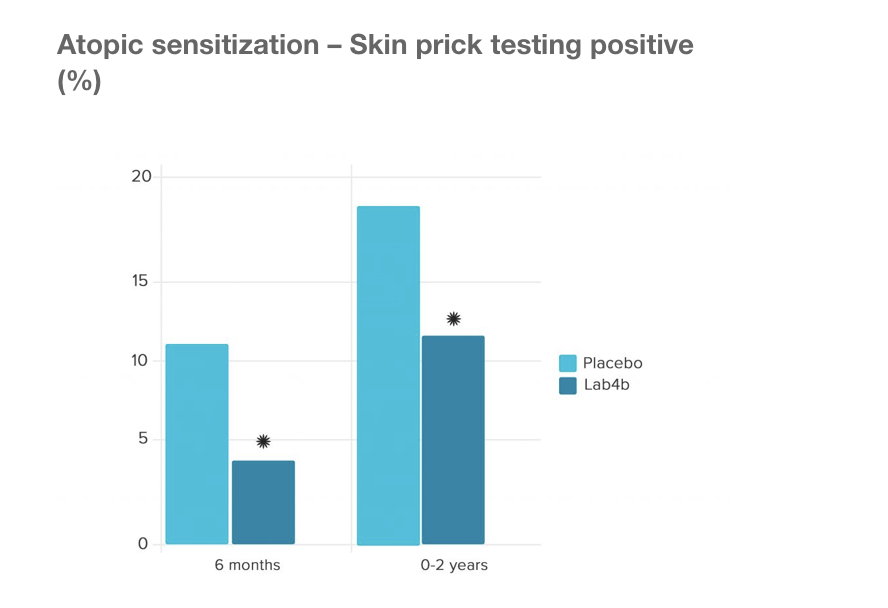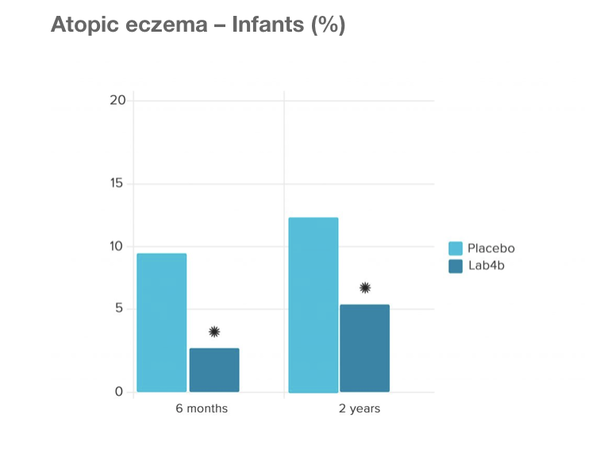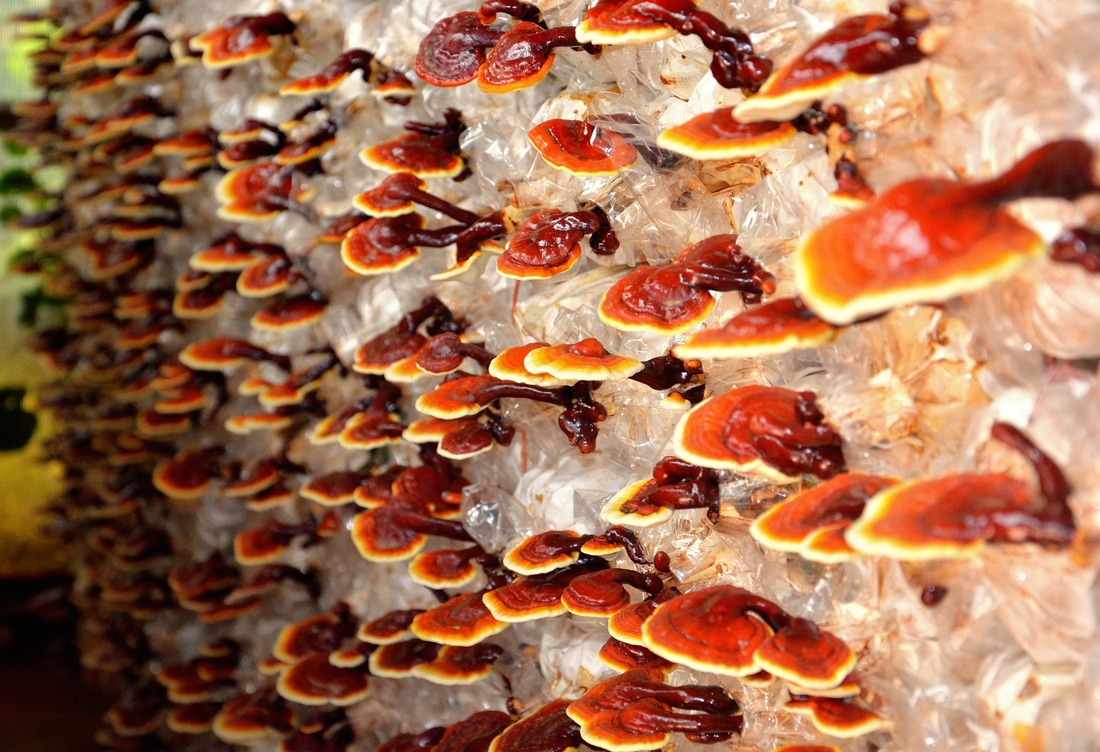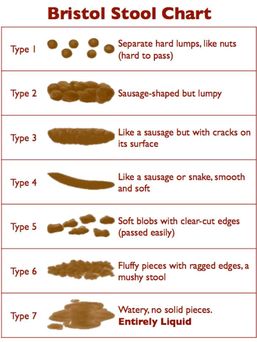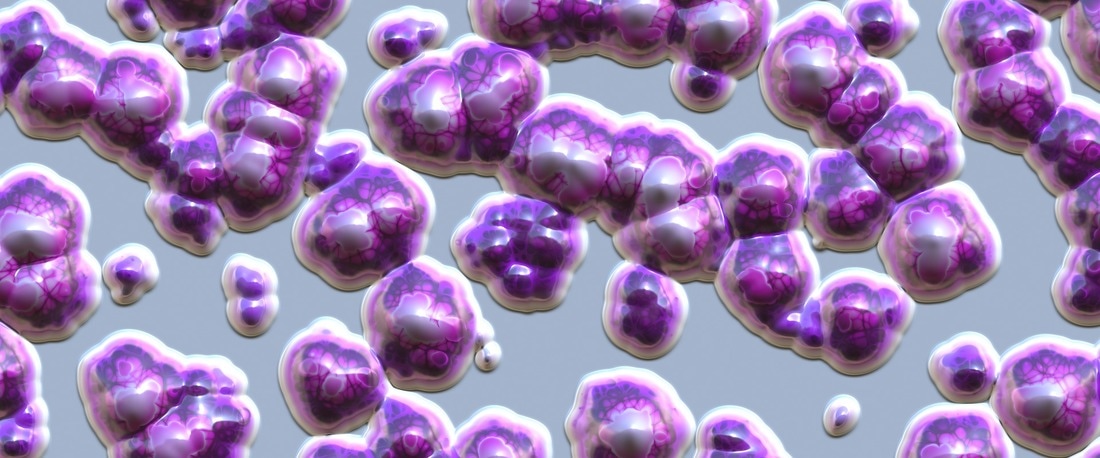|
Vitamin D is one of the most common deficiencies. It is estimated that 1 billion people globally have Vitamin D deficiency and 50% of the global population have Vitamin D insufficiency. It is estimated that about 90% of our Vitamin D comes from exposure to sunlight whilst a small proportion comes from our diet. Individuals with darker skin have increased amounts of melanin in their skin which decreases the efficacy of Vitamin D absorption which is why people with darker skin are at greater risk, particularly in the UK where from October to March, the rays from the sun are not strong enough to enable our bodies to make vitamin D. This is one of the reasons that the Department of Health and the NHS now recommend that everyone in the UK should consider taking a vitamin D supplement from October to March. The elderly, overweight and those living in the Northern Hemisphere are also at greater risk. A 2017 study additionally revealed that shift workers, health care workers and indoor workers are at increased risk of developing a deficiency due to reduced outdoor time and sunlight exposure. Apart from this, malabsorption syndromes such as celiac disease, short bowel syndrome, gastric bypass and cystic fibrosis may also lead to Vitamin D deficiency. Medications such as phenobarbital, carbamazepine, dexamethasone, nifedipine, spironolactone, clotrimazole, and rifampin induce hepatic p450 enzymes which speed up the degradation of vitamin D.
Why do we need Vitamin D? Vitamin D's primary and vital function in the body is to maintain blood levels of calcium. It does this through increasing the amount of calcium absorbed from food in the small intestine. This helps the body to form and maintain healthy bones. A deficiency in vitamin D can lead to osteomalacia or rickets. A deficiency of vitamin D also increases the risk of developing osteoporosis and experiencing fractures and broken bones. Apart from this, vitamin D deficiency has also been associated with increased risks of cancer development, particularly breast, colon and prostate cancers. Researchers have found that increased sunlight exposure and circulating vitamin D are associated with reduced occurrence and mortality in many types of cancer. Vitamin D is well known for its impact on the immune system and studies suggest that inflammation is often at the root of many modern autoimmune diseases including multiple sclerosis, rheumatoid arthritis, digestive disorders and high blood pressure. University of Aberdeen researchers studied patients in the North of Scotland which has the highest rate of MS in the UK who were treated during the winter with UV-B light therapy. Dr Anthony Ormerod, Clinical Reader in Dermatology at the University, said: “Our study shows that UV-B light, which mimics sunshine, can have a striking effect on the immune system of patients." In addition, a study in 2018 from Trinity College Dublin linked vitamin D deficiency with an increased risk of depression of over 75% over a four year follow up period. What are the symptoms of Vitamin D deficiency? There is evidence to suggest that people with vitamin D deficiency are at increased risk of developing health conditions such as osteoporosis, autoimmune conditions, depression and cancer. Symptoms can also include weakness, chronic fatigue, depression, insomnia, anxiety, weakened immune system, inflammation and weak or broken bones. We would recommend that you are tested for vitamin D deficiency if you experience any of these symptoms. Vitamin D tests are available on the NHS and in our Nourishing Insights clinic. This is a simple pin prick blood test which can be done at home. Find out more about Vitamin D testing and order here. How can I optimise my vitamin D levels? The main way in which we obtain vitamin D is from exposure to natural sunlight from the sun. When UVB rays land on the skin, a substance in the skin, 7-dehydrocholestrol is converted into vitamin D3. There are two types of supplemental vitamin D; Vitamin D2 and Vitamin D3. The type of vitamin D our bodies makes naturally is vitamin D3. Whilst the body is able to convert some D2 for use, vitamin D3 is believed to convert 500 times faster than D2 and is estimated to be four times more effective in humans. Most experts suggest spending 20 minutes in the sun without suncream (suncream blocks the absorption of vitamin D) to enable your body to absorb vitamin D naturally without damaging the skin. For darker skinned people, the time recommended increases to around 40 minutes. If you do not want to expose your skin to the sun, you should use a good quality supplement to make sure you are obtaining enough vitamin D to protect your immune system, bones, joints and general health. Are there any food sources? Sunlight is the best source of vitamin D and it is difficult to obtain vitamin D only from food. However, there are some food sources and research suggests that eating foods which are rich in Vitamin D can help you acquire more. Some of the best sources of vitamin D in foods are halibut, mackerel, salmon, herring, trout and eggs. Mushrooms are one of the only plant sources of vitamin D and they acquire vitamin D the same way the human skin does, through exposure to the sun. The vitamin D content of mushrooms is increased through exposure to Ultra Violet light. The quantity of vitamin D in mushrooms can vary dependant on how they are grown. Who should supplement and how much should I take? Current Department of Health recommendations suggest the following ‘at risk’ groups should be using a vitamin D supplement all year round. These include:
From October to March the Department for Health recommends that everyone should supplement with Vitamin D. However, bare in mind that many of us now are spending little time in the sun and when we are we are wearing sun creams or covering up. Even in hot countries where people are going from air conditioned homes to offices and malls with little exposure to sunshine has led to a global epidemic with deficiency. For example, in countries such as Pakistan it is estimated that 80% of the population is deficient. In addition, it is estimated that vitamin D has a half life of about 15 days which would mean that every 2 weeks our levels halve without ongoing exposure to sunshine or supplementation. Therefore, your holiday in the sun in February is not going to help you in April. Dosages vary according to age, bodyweight and level of deficiency. Testing is recommended to optimise your dose. Are there other nutrient considerations when supplementing with Vitamin D? Vitamin D and K2 Vitamin D and Vitamin K2 work synergistically with each other to ensure that calcium is directed out of the arteries and into the bones where it helps improve bone density. Without enough vitamin K2 calcification within the arteries can occur. We normally advise a combination product of D and K2 for the post-menopausal age group. Vitamin D and Magnesium Magnesium plays a key role in determining how much vitamin D our bodies can make. It’s suggested that people whose magnesium intake is high are less likely to have a vitamin D insufficiency than people whose magnesium levels are low. It’s also claimed that magnesium supplementation increases vitamin D levels in people who are deficient in the vitamin, but causes a reduction in people whose intake is high. Too much vitamin D can increase calcium levels, which in turn can lead to certain health complications. To learn more about magnesium and signs of deficiency, have a look at our blog. To find out more about Vitamin D supplementation contact us here, or come and visit us at 44 St Andrew Street Aberdeen. Nutritional Therapy consultations are also available on Zoom and skype. More information here.
1 Comment
Adaptogen herbs are quite an amazing type of healing plant which can help our stress response by modulating cortisol and normalising our physiological function. Possibly one of the best known is ginseng of which there are several types. My first experience with Siberian ginseng was about 23 years ago when going through a period of fatigue post virally and was fortunate enough to live beside Scotland’s first qualified Medical Herbalist Brian Lamb. Brian started me on Siberian ginseng among other things which had me firing on all four pretty quickly. Since then, I have been a firm advocate and have been fascinated by the quite remarkable benefits of these herbs which I wouldn’t be without in my own life.
1. Siberian Ginseng or Eleutherococcus senticosus. My personal favourite and one I’ve used many times with success over the years. Research has shown that eluthero can significantly improve energy, mood, stamina and cognitive function. It has also been shown to modulate blood pressure. One example is a study of those with chronic fatigue which showed benefit especially for those with mild to moderate symptoms. 2. Ashwagandha has been shown to improve memory and learning and is also the most researched adaptogen for those with underactive thyroid. In Ayurvedic medicine it is seen as an all round tonic and used to promote fertility. Some studies have shown cognitive benefit for those with bipolar disorder and also an improvement in cholesterol and blood glucose in diabetes. 3. Rhodiola has been researched in relation to its impact on stress and depression. In a study of people with stress related burn out, it improved many associated measures including stress and depression. One study has suggested that Rhodiola showed favourable results versus Zoloft (sertraline) with less associated risks for mild to moderate depression. Because of the lack of side effects, some have suggested it be used in place of antidepressants which do come with side effects and also deplete certain nutrients. 4. Shatavari is an interesting adaptogen and has many uses. The word literally means ‘woman who has a thousand husbands’ and is traditionally given for fertility and improved libido, vaginal dryness and is useful in the prevention of osteoporosis. It is also widely used as a woman’s herb and has been shown to be an excellent galactagogue for low milk supply. For menopausal women, it has also been shown to improve libido. 5. Holy basil is lesser known but becoming more mainstream perhaps due to the availability of Pukka Tulsi tea which is becoming popular. Also known to boost energy and cognition, there are studies showing improvement in generalised anxiety. Tulsi has been shown to have broad spectrum antimicrobial activity in studies. 6. Astragalus is a fascinating herb with many effects and research has suggested it may have anti-tumour activity, blood sugar lowering effects and supports the immune system. It has been shown to prevent colds and flus and is particularly beneficial for upper respiratory infections. Some studies have looked at the cancer protective effects. 7. Cordyceps is an adaptogen which is lesser known among the public but is gaining recognition across many pathologies. It is actually a type of fungi or medicinal mushroom which, similar to the above also has immune modulating effects and supports the stress response. You may come across it in supplements to support stress or adrenal function. It also has anti-tumour effects and is indicated for respiratory infections and chronic fatigue. More and more research is coming out on the effects of mushrooms in cancer prevention and indeed mushrooms are widely used in mainstream medicine in Russia, China and Japan. In clinical practice we use adaptogens for many different benefits as explained above and we sometimes use more than one where needed. I myself take an adaptogen year round and change it according to my needs. The question is not so much whether to take an adaptogen, it is more which one would help me most! Drop us an email for advice on which might be most helpful for you at [email protected] Eczema or atopic dermatitis is a chronic skin condition often causing red itchy inflamed skin which can range in severity from mild to severe. According to statistics around 15 million people in the UK live with this condition and in 2015 GP’s in England wrote around 27 million prescriptions for various topical agents costing around £169 million. If you are thinking to yourself that more and more people are suffering from this you’d be right in your assumption. An NHS funded study has shown that the numbers of cases have risen by 40 % in 4 years. What we do know about the condition is that it is an allergic condition with 80% of sufferers having raised IgE antibodies. Eczema patients have positive allergy tests and around two thirds have a family history. Many also suffer from other atopic conditions such as asthma and hay fever. The standard treatment protocols involve simply managing symptoms via emollients and sometimes steroids and if infection is triggered due to scratching, antibiotics. Allergens are also tested for although these tend to focus on only IgE mediated reactions. Other considerations…. Immune function We are back to finding our root cause. So first lets look at what’s going on in the immune system. The allergy antibody IgE is elevated in 80% of cases and this is activated by a type of white blood cell, a helper cell called TH2. Mast cells can release higher amounts of histamine leading to the itch that we associate with eczema. Then there’s the issue that around 90% of sufferers also have a predominance of the bacteria Staphylococcus aureus on the skin which their immune system is unable to kill. Often scratching can activate this infection and cause some potentially severe staph infections. So how do we prevent this vicious circle? Well we have to do everything we can from day one to promote our gut/immune function. In our immune system we have regularly T cells sometimes known as Treg, which are involved in immune suppression and immune tolerance. It’s known that an unhealthy gut can lead to a decrease in these important cells and therefore an imbalance in our TH1/TH2 cells with the TH2 cells being unregulated. Studies have indicated that the use of probiotics from birth can confer a reduction in TH2 dominance and symptoms of AD at 13 months old versus placebo. Breast feeding Studies have shown that breast feeding is associated with a reduced risk of eczema and other allergies. However there is a caveat here in that although breast milk may confer antibody protection, in at risk children it may also be necessary for the feeding mum herself to remove common allergens which may unwittingly be triggering the problem as these proteins pass through the milk. Common allergens being dairy, peanuts and eggs. That said, the advice is to introduce these common allergens while breast feeding at the 6 to 12 month stage and to then continue to breast feed for a further 6 months following this introduction. Older and formula fed children In older and formula fed children a study looking at triggers for eczema indicated that Peanuts eggs and milk have been shown to account for 80% of adverse reactions to foods in people living wth contact dermatitis. Other common triggers and are wheat, fish and soy. The hygiene hypothesis. Are we just too clean? Epidemiological studies, especially those looking at migration from one country to another indicate that we acquire the same immune disorders as soon as we move to another area so environmental factors are playing a huge role. Lifestyle changes have led to a decrease in infection in the industrialised world and this has been shown to be inversely correlated with increases in allergies and autoimmunity. Studies have also shown that exposure to animals or growing up on a farm confers protection from a young age as we are exposed to a greater variety of bacteria which leads to activation and modulation of innate and adaptive immune response. In one large Swiss study, nearly 14,000 children were surveyed between 2006 and 2007, with over 3,000 farming children and around 11,000 non-farming children. In this study, 38% of the non-farming children had allergies compared to 19% of the farming children. Digestive compromise Those living with allergies have commonly got some level of digestive compromise and dysfunction. Stomach acid which normally assists in the removal of infection and therefore has a protective role, can commonly become low and therefore play a role in weakening our immune system and make us more prone to infection. It also sets us up potentially for the leaky gut phenomenon which puts us at risk of further food sensitivities of the IgG variety (delayed reaction) and chronic inflammation. If you have intestinal permeability you may also be experiencing other health challenges e.g. fatigue, brain fog, headaches, depression, sinus, IBS, reflux, joint pain, and autoimmunity. This is also why I see many clients in clinic who may be coming along for help getting to the root of their eczema but who also have any number of the aforementioned symptoms. A lack of a very important nutrient zinc can ensue as a consequence of low stomach acid. This nutrient is essential for immune, gut, hormone and skin health. It affects appetite, smell and taste of food, so in children who have a narrowing of food choices and are no longer enjoying certain foods, zinc deficiency may be at the heart of this. It is also a particular problem in cases of acne in teenagers so look out for changes in eating and appetite in older children and test their zinc levels. This can be done with a very simple taste test which all the family can do. Adequate zinc is also required for healing the gut. Gut Flora and probiotics Because our immune system resides primarily in the gut we need to look at gut bacteria. We also need to weed out any trouble makers Interestingly yeast overgrowth is a common cause of eczema. It’s also a very common problem as the western diet of high sugar, refined carbs and low fibre sets up the perfect conditions for this to grow. In addition, yeast overgrowth can result from long term medication use e.g. antibiotics, steroids and the oral contraceptive pill. We therefore need to ‘weed and seed’ the gut, get the infections out and the good bacteria in to assist with immune balancing and symptom resolution. Risk factors for allergies in children This relates to those factors which influence the health of the micro biome from day one. In an ideal world we need to be focusing on the gut health of mum prior to a planned pregnancy as this is what baby inherits. Areas of concern are
The Swansea Study This was a large study by the University of Swansea Medical School with 454 mother/baby pairs who were given Lab4b probiotics containing Lactobacilli and Bifidobacteria both during the final month of pregnancy and the first 6 months of infancy to evaluate whether this would prevent allergy in children. The results showed that versus placebo, the probiotic groups did indeed confer a protective effect on prevention of eczema and also prevention of allergic reaction to common allergens including pollen, cows milk, eggs and dust mites. Prof. Steve Allen, concluded the following key message from the trial:‘Lactobacilli and Bifidobacteria administered to pregnant women and infants aged 0-6 months prevented atopic sensitization and atopic eczema. The babies given the Lab4b probiotics were 57% less likely to develop atopic eczema than those receiving the placebo. The babies given Lab4b were 44% less likely to develop allergic reaction to common allergens, including pollen, cow’s milk, egg and house dust mite. Stress
Stress is very much linked with gut/immune function and when we are stressed we are more likely to have a flare of these conditions so managing stress for young and old is a life long strategy for eczema management. Adaptogen herbs can be helpful as can mindfulness, meditation and essential oils such as lavender for relaxation. As those living with eczema have a tendency towards poor absorption due to gut compromise a common nutrient which we can find ourselves low in is magnesium and this is also because we actually use more of it when we are stressed. More tips here on how to maintain levels. Nutritional therapy/ Functional medicine approach for eczema The nutritional therapy approach involved recognition of all of the above factors and follows through with the following stages.
Further testing This can be done if required and in addition to either allergy or food intolerance testing we can offer stool testing to identify infection and imbalance and even cortisol testing if stress is a particular trigger. Supplements This really does depend on the individual. It depends on what else they may be presenting with, their individual root cause/s, what medications they are on etc. However core supplements to include are going to be probiotics to reinoculate the gut, omega 3 and vitamin D. We may also recommend supplements and diet change to support gut integrity and immune balancing as per above recommendations. More info on booking an appointment with us for adults and children here. Referenced Studies Burks AW, Williams LW, Mallory SB, et al. Peanut protein as a major cause of adverse food reaction in patients with atopic dermatitis. Allergy Proceedings 1989;10:265-269. Von Mutius E, Vercelli D. Farm living: effects on childhood asthma and allergy. Nat Rev Immunol. 2010;10:861–868. Allen SJ et al 2014. Probiotics in the prevention of eczema: a randomised controlled trial. Archives of Disease in Childhood 99(11): 1014–1019 Mushrooms have been used in traditional Chinese medicine for centuries but it is only in the last few decades that scientific studies have revealed some of their health benefits. There are over 100 types of mushrooms but some of the most studied for their health benefits are Shiitake, Cordyceps, Maitake, Oyster, Lion's Mane, Enoke, Reishi and Chaga. Mushrooms contain important vitamins, minerals and enzymes that have been shown in numerous scientific studies to boost the immune system. They also contain bioactive molecules that have anti viral, anti inflammatory and antioxidant abilities. Due to their immune boosting properties, there has been a lot of research into the effect of mushrooms in Cancer prevention. Some studies have suggested that mushrooms can inhibit tumor formation and stop cell mutation whilst protecting healthy cells and increasing the bodies capacity to detoxify itself from harmful substances. According to the medical journal 3 biotech , "mushrooms anti-cancer compounds play a crucial role as a reactive oxygen species inducer, mitotic kinase inhibitor, anti-mitotic, angiogenesis inhibitor and lead to apoptosis, and eventually checking cancer proliferation." In 2000, a report published by Cancer Research UK and the University of Strathclyde looked at different types of mushroom and cancer. Pure extracts of exotic mushrooms such as shiitake, enoke, maitake and oyster were shown by researchers in China, Japan and Korea to have anti-tumour properties and be capable of stimulating the immune system to fight disease. In addition, the use of medicinal mushrooms was found to reduce the side effects of both chemotherapy and radiotherapy, including sickness and hair loss. Another study published in the World Journal of Gastroenterology looked at the effects of chaga mushroom on cancerous human liver cells. The research reveals that chaga extract may be able to prevent liver cancer cell growth, which it has been thought make it a potential treatment for cancer in the liver. Medicinal mushrooms have also been shown to have special fighting abilities against deadly multi-resistant bacterial strains and microorganisms responsible for gut and skin problems. Interestingly, some substances present in antibiotics such as penicillin and tetracycline are derived from mushroom fungal extracts. Many types of mushrooms help to lower cholestrol levels naturally, support energy and improve brain function. Mushrooms such as Reishi are also considered to be adaptogens that lower cortisol and help your body to deal with stress and anxiety. Reishi mushrooms have also been shown to improve memory and concentration and because they contain lanostan, an antihistamine, they can also be beneficial for arthritis and soothe muscle aches. Cordyceps mushrooms can help to increase stamina and endurance due to their ability to help the body produce ATP. These mushrooms are also used as an adaptogen to increase energy and reduce fatigue. A 2010 study published in the Journal of Alternative and Complementary Medicine demonstrated that supplementation with Cs-4 (Cordyceps sinensis) improved exercise performance and contributed to overall markers of wellness in older adults. The study into medicinal mushrooms is a vast subject and there are many other health benefits and ongoing studies and research in the area. If you would like to learn more about medicinal mushrooms, pop into the shop and ask to speak to our nutritional therapist at Nourishing Insights, 44 St Andrew Street, Aberdeen. What is Endometriosis? Endometriosis is a common women’s health condition affecting 1 in 10 women in which cells from the endometrium (lining of the uterus) appear and flourish outside the uterine cavity, usually on the ovaries. Symptoms can worsen at certain points during the menstrual cycle as cells are influenced by female hormones. Symptoms can include pelvic pain, painful periods, painful intercourse and infertility. It can also impact urinary issues and pain on urination and has been linked to interstitial cystitis. Usually endometriosis is diagnosed after a laparoscopy of the pelvic cavity although pelvic ultrasounds are also used to detect endometrial tissue outside the uterus. The shedding of endometrial tissue long term can lead to scarring and chronic inflammation which has led many experts to suggest a strong autoimmune component to the condition. In clinical practice it is something we often see coexisting with other autoimmune conditions. Risk factors for endometriosis include: family history, a diet high in trans-fats, use of intrauterine devices, and unbalanced oestrogen levels. Conventional Treatments Symptoms are often managed with hormonal medication to suppress the natural menstrual cycle, plus painkillers to manage the associated discomfort. Occasionally progesterone creams may be prescribed. The most aggressive treatment is surgery, with some women opting for a hysterectomy. The long term use of non steroidal anti-inflammatory medication for pain can contribute to the problem as it sets us up for intestinal hyper permeability (leaky gut) which adds to the picture of inflammation, so safer and effective means of reducing inflammation are needed. Although laparoscopic removal of endometrial tissue can benefit sufferers for up to 2 years, symptoms generally return and the procedure itself can cause lead to further scar tissue. In an ideal world sufferers would be referred to Nutritional Therapists or Functional Medicine practitioners to explore root cause/s and to address all angles. Natural Alternatives The naturopathic approach to endometriosis is focussed on:
Reducing Inflammation Inflammation is a huge driver for endometriosis. The Nurses Health Study II found that women who consumed the most trans-fats (hydrogenated vegetable oils often used in processed foods) were 48% more likely to be diagnosed with endometriosis. Women with the highest consumption of omega-3 fatty acids were 22% less likely to be diagnosed with endometriosis. Reducing the amount of omega-6 fatty acids at the same time as increasing omega-3s also helps reduce inflammation. Ideally we would have an omega-6:omega-3 ratio of 3:1 however the western diet is closer to 16:1! Foods that are high in omega-6 and should be avoided include sunflower, corn, soybean and cottonseed oils. In addition to this opt for grass-fed meat as livestock fed a grain-based diet high in corn and soya produce meat high in omega-6. Foods that are high in omega-3 include: Oily fish like salmon and mackerel; flax and chia seeds; organic free-range eggs; extra virgin olive oil; and walnuts. Some people may also benefit from supplementing with an omega-3 oil in the short term while they make dietary changes. Antioxidants are very relevant to prevention and reversal of tissue damage in endometriosis, so it's important to increase our antioxidants in the diet via increasing vegetables and fruits (ideally organic). Vitamin C, A and E are beneficial and also resveratrol from red grapes, N-Acetyl cysteine, pine bark, green tea and melatonin have been studied for their powerful antioxidant benefits with some interesting results. NAC (N-acetyl cysteine ) A 2013 study of 92 women with endometriosis showed that following 3 months of supplementing with NAC for 3 days a week each week led to cancellations of laparoscopic visits due to a reduction in symptoms. A new 2023 study has also showed the benefits of NAC. Conclusions are that NAC showed a statistically significant reduction in endometriosis pain, a statistically significant reduction in endometrioma size and 75% of patients who wanted to had a spontaneous pregnancy within 6 months! I have been using NAC for a long time in clinical practice and can attest to the benefits most strongly. It also has benefits for miscarriage prevention among many others. Pycnogenol from pine bark A swiss study which gave women either Pycnogenol or GnRH (Gonadatropin releasing hormone) for 48 weeks showed a reduction in symptoms in both groups. Interestingly, after treatment stopped the benefits in the pycnogenol group lasted while the GnRH group relapsed after treatment. Melatonin A very interesting 2013 randomised, double blind placebo controlled study looked at the analgesic, antioxidant and anti-inflammatory effects of melatonin in endometriosis with some very promising results. Apart from improving sleep, melatonin was shown to reduce the risk of using analgesics by 80%. Melatonin if supplemented needs to be started slow and gradually increased up to the 10mg dose used in this study. You can also support your own natural melatonin production by avoiding the blue light effect at night from computers and TV's, wearing amber glasses and sleeping in total darkness. Certain foods such as cherry, banana, oranges, kiwi and pineapple support melatonin production as does supplementing magnesium. Enhancing Detoxification Yes, we are talking about poo here! Actually detoxification involves the gut and the liver but it’s vitally important to make sure that we move our bowels at least once every day if we want to facilitate optimal detoxification. We also want to make sure that we are having a normal bowel movement. On the Bristol stool chart below we should be aiming for a 3-4. If you are having anything other than that pop in and have a chat because there are lots of things you can do to support healthy bowel function. Constipation is a common problem in hormonal imbalance across the board and we need to get to the root cause to eliminate this risk factor properly. Increasing the amount of vegetable-based fibre in the diet is vital if we want to support our gut bacteria as this is what the good bacteria feed on. Increasing our intake of vegetable fibre has been shown to help clear excess oestrogen from the bloodstream. Cruciferous vegetables are particularly good at this so increase your intake of: broccoli, brussels sprouts, cabbage, kale and cauliflower. Supplementing with the right B vitamins can support detoxification of hormones promoting balance. Endometriosis often involves higher oestrogen over progesterone (which tends to be low), another commonly used herbal supplement which is used to rebalance the hormones is Agnus castus. There are further supplements which support this but these are advised on a case by case basis and depend on identifying individual challenges and possibly further testing. For some sufferers there may be an underlying SIBO (small intestine bacterial overgrowth) which needs to be dealt with. Balancing hormones This involves diet as well as removal or avoidance of a class of chemicals known as endocrine disrupters. That's because these chemicals found in our cleaning fluids, toiletries and cosmetics and plastic bottles actually exert a xeno-oestrogen or oestrogen mimicking effect. The trouble is our bodies don't know the difference between a real oestrogen and a pretend one so exposure to these chemicals needs to be avoided if we want to balance hormones. The increased exposure to these endocrine disrupters in modern living explains in part the increased challenges with many hormonally driven conditions. So time to take a look at your bottles hiding under the sink and examine your toiletries. There are many alternatives available which avoid all the nasties such as parabens and phthalates etc. Using essential oils are a safer way to clean your home and good old fashioned vinegar and bicarb will save you money and unnecessary toxin exposure. Managing stress Hormones don't work in isolation. The endocrine system works as a team and managing our stress hormones is key to supporting any hormone challenges. It's also why a comprehensive assessment of stress hormones is included in my preferred hormone screening. When stress is chronic and cortisol is elevated, progesterone can drop leading to unpleasant symptoms such as moodiness, increased weight around the middle, sleep problems and breast tenderness. Supplementing with magnesium and adaptogen herbs can support this as can meditation, yoga and mindfulness. Reducing Symptoms Studies have shown a significant reduction in symptoms in women who move away from eating higher-glycaemic carbohydrates (bread, pasta, rice, cakes, etc.), reduce caffeine and increase their intake of Omega-3 fatty acids. Caffeine can have be a problem for many women with endometriosis with one study showing consuming 150-225mg of caffeine per day (about 1-1.5 cups of coffee) increased the risk of endometriosis by 20% and those who drank more than 225mg of caffeine had a 60% increase. Supporting blood sugar balancing is fundamental for hormone balancing as these two are related. Turmeric has been shown to reduce inflammation, support blood sugar (important when you’re trying to reduce food cravings), reduce pain and support liver detoxification making it a key supplement in the support of endometriosis. Magnesium, Ginger root and Devil's claw are also favourites as anti-inflammatories in place of NSAID's. Magnesium can be taken throughout the month with an increased dose the week prior to a period. Magnesium is commonly deficient in endometriosis and you may be experiencing symptoms of deficiency such as twitchy eyes, restless legs, anxiety, palpitations, headaches, sleep problems. These are things I see commonly in clinical practice. It's important to find the right kind of magnesium and also the right dose for you so do get in touch to find out more. A simple way of using it in addition to oral supplementation is to use a spray on the abdomen daily and increase the week before a period. In addition to its anti-inflammatory benefits, magnesium is also essential for energy, mood, sleep and blood sugar regulation. We also recommended epsom salt baths due to very good transdermal absorption. Food intolerance also play a part here in that if we continue to eat foods which we are intolerant to we add to the picture of inflammation. One of the biggest drivers in endometriosis is gluten and studies have shown a significant reduction in symptoms following a gluten free diet. However, when IgG food intolerance testing is done, we can see a further reduction in symptoms. Other food triggers can be dairy, soya, yeast, eggs, corn, peanuts, cane sugar and also foods in the nightshade family eg tomatoes, potatoes etc. Endometriosis has a strong link with IBS so following the anti-inflammatory protocol above and an elimination has been found to be supportive of both conditions. Genetics: nutrigenomics is the study of how nutrition influences every aspect of our gene expression. When we do genomic testing we learn how our individual genetics play a role in every aspect of our physiology from detoxification to how we metabolise hormones and nutrients (among many others) and this is becoming such a pivotal starting point for many as it gives use those immediate signposts at an individual level as to why a person may need more specific support with certain supplements or why they may not tolerate others. It can also guide us to the right type and combination of supplements when we know the individual needs based on genetics. We also learn how our nutrition influences our gene expression either positively or negatively so we can make the most optimal choice for us. If you're one of those people who feels they have tried everything and is still not getting the answers and symptoms resolution, looking at genetics could definitely be the way forward. You could always book a discovery call if you would like to understand more. Massage therapy can also help reduce symptoms. An Iranian study showed that massage of the back, sacrum and abdomen lead to a significant reduction in painful dysmenorrhea caused by endometriosis. Abdominal massage can also stimulate peristalsis in the large intestine therefore support detoxification. In addition to this abdominal massage can also help to breakdown scar tissue and adhesions. In all cases risk factors and drivers are always individual and an appointment with a Nutritional Therapist can help you uncover the triggers and drivers of your own condition and support you with an individualised protocol. We also have access to a range of tests including comprehensive hormone screening such as the DUTCH Test which covers reproductive hormones, stress hormones, melatonin levels, neurotransmitters and B vitamin metabolites. We can also assist you with long term plans such as fertility and other co-existing health challenges. Always ask us first before choosing supplements as there may be drug nutrient interactions to consider or speak to your healthcare provider. Some off the shelf supplements may also contain food allergens and other additives. To book an appointment or for enquiries contact us here References: https://academic.oup.com/aje/article/137/12/1353/155016 http://cancerres.aacrjournals.org/content/41/9_Part_2/3771.short http://www.fertstert.org/article/S0015-0282(01)01991-4/abstract https://academic.oup.com/humrep/article/25/6/1528/2915756 http://europepmc.org/abstract/med/23334113 https://www.sciencedirect.com/science/article/pii/S0753332217346838 https://www.ncbi.nlm.nih.gov/pmc/articles/PMC3093183/ https://www.ncbi.nlm.nih.gov/pubmed/17879831 https://www.ncbi.nlm.nih.gov/pubmed/23737821 https://www.ncbi.nlm.nih.gov/pubmed/23602498 https://pubmed.ncbi.nlm.nih.gov/18983759/ https://www.ncbi.nlm.nih.gov/pmc/articles/PMC10048621/ Last week we covered Probiotics in Pregnancy and touched on how supplementing babies can help reduce the incidence of eczema and other allergies. But what about other common complaints in infancy? Can probiotics help there too? Let's look at some of the usual suspects: Colic is something that has troubled parents forever! The worst thing about colic is that we don't really know exactly what causes it. Having said that, anyone who has ever tried to comfort a colicy baby knows it's usually tummy trouble so trying a probiotic would make sense. A recent study now shows that introducing a probiotic has seen crying in infants fall by at least 50%. Another nightmare for new parents is reflux. (Not to be confused with 'happy pukers' it's totally normal for breastfed babies in particular to guzzle a little too much and then puke out the extra. It's part of their self regulation and why there is now a link between breastfeeding and reduced childhood obesity. If baby seems fine after they vomit you've probably got one of these!) Probiotics can be helpful here too. An Italian study has shown that probiotics can increase gastric emptying and therefore decrease the frequency of regurgitation. Constipation is also a common digestive problem in small children. Studies have shown that taking a probiotic can increase stool frequency and improve the consistency of stools. It has also been found to reduce the frequency of faecal incontinence and significantly reduce tummy pain. Severity and duration of boughts of diarrhoea have also been reduced by taking a probiotic. One finnish study found that the probiotics successfully colonized the gut and reduced the duration of watery diarrhoea usually associated with the rotavirus. In the ProChild study children were given either a placebo or Proven's Fit for School probiotic for six months. Children taking Fit for School had:
If you would like to know more or to discuss your probiotic needs with Beverley our registered Nutritional Therapist just pop into the shop: Nourishing Insights, 44 St Andrew Street, Aberdeen, AB25 1JA. References: A. Bird Schreck et al. (2016) Probiotics for the Treatment of Infantile Colic: A Systematic Review. Journal of Pharmacy Practice p1-9. F.Indrio et al. (2011) Lactobacillus reuteri accelerates gastric emptying and improves regurgitation in infants. European Journal of Clinical Investigation. 41(4) p 417-422. N. Bekkali et al. (2007) The role of a probiotics mixture in the treatment of childhood constipation: a pilot study. Nutrition Journal. 6(17) M. Tabbers et al. (2011) Is Bifidobacterium breve effective in the treatment of childhood constipation? Results from a pilot study. Nutrition Journal. 10(11) A.V. Shornikova et al (1997) Bacteriotherapy with Lactobacillus reuteri in rotavirus gastroenteritis. The Paediatric infectious disease Journal 16(12) p 1103-1107. I. Garaiova et al. (2015) Probiotics and vitamin C for the prevention of respiratory tract infections in children attending preschool: a randomised controlled pilot study. European Journal of Clinical Nutrition. 69 p.373-379. Probiotics seem to be something that everyone is talking about these days, but what exactly are they? What do they do? Where do they come from? How do I know if I need one?
'Probiotic' literally means 'for life'. More often are defined as being "viable microorganisms that have a beneficial effect in the prevention and treatment of specific pathologic conditions when they are ingested". Basically they are the good bacteria that should be found in your gut. Did you know that approximately 85% of your immune system is found in the gut? This is because it is the job of these good bacteria to be the gatekeepers to our body. They are our first defence against foreign bodies, preventing colonization by viral and bacterial pathogens. Wondering where you got your good bacteria from in the first place? Your mum! During a vaginal delivery the baby is covered in secretions which contain it's mothers bacteria. The mother passes her gut flora on to her baby and this in turn colonizes their gut. From that day forward we are constantly changing our gut flora depending on what we ingest. We are exposed to coughs, colds, travel, different foods, medications and all of these impact our gut ratio between good and bad bacteria. Sat there thinking well my granny hasn't taken a probiotic and she never gets ill at 96! The truth is that she has probably had her fair share of 'probiotics' but they just didn't call them that then. Traditionally fermented foods like sauerkraut, kefir, kombucha, raw yoghurt and even beer were all sources of good bacteria. In the days before fridges and supermarkets, fermentation was a way of preserving produce to survive long winters. These days everything goes in the fridge, crops are sprayed with pesticides which just like the antibiotics you get from the doctors are not selective about whether the bacteria they are killing is good or bad. Most supermarket products have also been pasteurised to extend shelf life and prevent outbreaks of harmful bacteria. This means that the good bacteria in traditionally fermented foods is killed along with any bad that may have been present. The good news is that there is now a move back towards traditional probiotics with kefir, kombucha, and sauerkraut gaining in popularity. Thinking about stocking up on those yoghurt drinks from the supermarket? Think again! Did you know that many of them have more sugar per 100g than fizzy pop? One of the easiest ways to up your good bacteria is to take a probiotic supplement many of which also contain prebiotics (food not absorbed by the host that supports the growth of good bacteria). So do you need a probiotic? The reality is that most of us should take a probiotic supplement even just in the short term. Why? The vast majority of us have at some point done at least one of the following all of which negatively effect your gut flora: taken an antibiotic; suffered from colds and viruses; have IBS or IBD; taken the contraceptive pill; taken steroids; travelled abroad; suffer from or have a family history of auto immune conditions e.g. under-active thyroid, diabetes, lupus, psoriasis, etc; or allergenic conditions e.g. food allergies and excema. There is a wealth of research out there which clearly demonstrates the huge role that probiotics have in supporting our immune system and preventing disease. A recent study examining the role of probiotics in the reduction of diabetes states that probiotics contribute to a reduction in inflammatory response and oxidative stress. This leads to increased insulin sensitivity and a reduction in the autoimmune response. Increasingly well known is the fact that our gut micro biome influences our mental health with neurotransmitters manufactured in the gut including serotonin and GABA. Allergenic diseases have increased over the last 40 years in industrialized nations but NOT in the developing world. Put simply we are just too clean, our homes and farms are sprayed to within an inch of their lives, we eat processed foods and we aren't exposed to the diseases we once were. All of this impacts on our gut flora and prevents the normal responses to allergens from developing properly leading to an increase in disease. Children with food allergies have been found to have an imbalance between good bacteria and potentially harmful ones. The same has been observed in a study of children with atopic eczema. So which one should I take? Well firstly you need to find a probiotic which is scientifically proven to survive gut acidity. Then the answer is it really depends on you and what your individual needs are. If you are looking to support mental health a probiotic with bacterial strains proven to support depression and anxiety would be a good start e.g. lactobacillus acidophilus Rosell-52 and bifidobacterium long rosell 175 found in Optibac for everyday. However, there are a variety of ranges designed specifically for different needs: travel abroad, when you're taking antibiotics, pregnancy, breastfed babies, bottlefed babies, managing cholesterol levels, one for women for targeting the intimate flora, the list goes on. Still not sure, or just want to know more? Pop into the shop and have a chat with us. References: R. Rolfe. (2000) The Role of Probiotic Cultures in the Control of Gastrointestinal Health. Journal of Nutrition. 130 p.3965-4025 M.Geuking et al. (2014) The interplay between the gut microbiota and the immune system. Gut Microbes 5(3) p. 411-418 P. Kirjavaninen et al. (2001) Characterizing the composition of intestinal microflora as a prospective treatment target in infant allergic disease. FEMS Immunology & Medical Microbiology. 32 (1) p. 1-7 B. Bjorksten et al. (1999) The intestinal microflora in allergic Estonian and Swedish 2-year-old children. Journal of the British Society for Allergy and Clinical Immunology. 29(3) p 342-346. A.Gomes et al. (2014) Gut microbiota, probiotics and diabetes. Nutrition Journal. 13(60) http://www.optibacprobiotics.co.uk/faq/why-consider-optibac-probiotics-over-probiotic-yoghurt-drinks |
Amazon Associates DisclosureNourishing Insights is a participant in the Amazon EU Associates Programme, an affiliate advertising programme designed to provide a means for sites to earn advertising fees by advertising and linking to Amazon.co.uk. Archives
December 2023
|
WHAT OUR CLIENTS ARE SAYING“I did Nutritional Therapy with Beverley and it was life changing. I highly recommend it!” Allison Blakely (Glasgow)
|
Contact Us |




